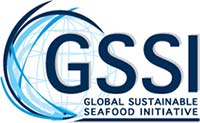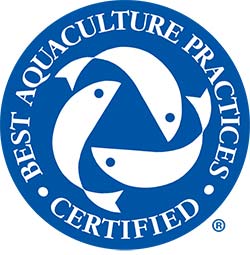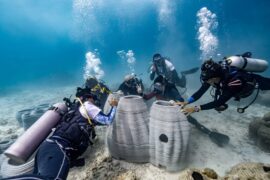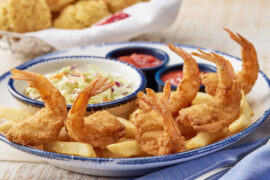The Global Aquaculture Alliance’s Best Aquaculture Practices (BAP) third-party aquaculture certification program is one step closer to becoming recognized by the Global Sustainable Seafood Initiative (GSSI).
The process began in December of 2015 when BAP applied for GSSI recognition, step one of a seven-step process to determine whether the BAP Finfish and Crustacean Farm Standards and BAP Salmon Farm Standards are in alignment with all Essential Components of the GSSI Global Benchmark Tool.
On June 23, the GSSI Benchmark Report was published, triggering a 30-day public consultation in which stakeholders are encouraged to submit comments for consideration. The public consultation is step five. In step six, the GSSI Benchmark Committee provides the GSSI Steering Board with a final recommendation on recognition, and all comments and responses will be made public after the Steering Board’s final decision on recognition.
BAP is the world’s first third-party aquaculture certification program to enter into public consultation.
“We are absolutely delighted that the Independent Experts and the Benchmark Committee have found BAP to be in alignment with all GSSI Essential Components,” said BAP Standards Coordinator Dan Lee. “This is a major step forward for independent recognition of the BAP program.”
GSSI’s Global Benchmark Tool, launched in October of 2015, was developed over a three-year, multi-stakeholder process involving environmental NGOs, businesses, independent experts, governmental and intergovernmental organizations, alongside two public consultations and a pilot test.
Three wild fisheries certification programs are already GSSI recognized — Alaska Responsible Fisheries Management (RFM) Certification Program, Iceland Responsible Fisheries Management (IRFM) Certification Programme and Marine Stewardship Council.
“With more certification schemes signing up and achieving recognition as well as global buyers building GSSI into their sourcing policies, GSSI delivers on its objectives of building confidence in certified seafood and creating a level playing field based on the FAO guidelines,” said Herman Wisse, GSSI Program Director.
About BAP
A division of the Global Aquaculture Alliance, Best Aquaculture Practices is an international certification program based on achievable, science-based and continuously improved performance standards for the entire aquaculture supply chain—farms, hatcheries, processing plants and feed mills—that assure healthful foods produced through environmentally and socially responsible means. BAP certification is based on independent audits that evaluate compliance with the BAP standards developed by the Global Aquaculture Alliance.
About GSSI
 GSSI is a global platform and partnership of seafood companies, NGOs, experts, governmental and intergovernmental organizations. Its mission is to ensure confidence in the supply and promotion of certified seafood as well as to promote improvement in seafood certification schemes. GSSI’s Global Benchmark Tool, which is based on international reference documents from the FAO, identifies and recognizes robust and credible certification schemes and supports other schemes to improve. The Benchmark Process is open to all certification schemes. GSSI will recognize a scheme that has gone through the process and is aligned with all GSSI Essential Components. For more information on GSSI Benchmarking, contact secretariat@ourgssi.org or visit www.ourgssi.org.
GSSI is a global platform and partnership of seafood companies, NGOs, experts, governmental and intergovernmental organizations. Its mission is to ensure confidence in the supply and promotion of certified seafood as well as to promote improvement in seafood certification schemes. GSSI’s Global Benchmark Tool, which is based on international reference documents from the FAO, identifies and recognizes robust and credible certification schemes and supports other schemes to improve. The Benchmark Process is open to all certification schemes. GSSI will recognize a scheme that has gone through the process and is aligned with all GSSI Essential Components. For more information on GSSI Benchmarking, contact secretariat@ourgssi.org or visit www.ourgssi.org.





